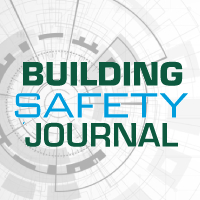
Plumbing code essentials: Water quality and treatment
![]() The 2018 Code Essentials series are available as valuable companions to the 2018 International Building, Residential, Fire, Energy Conservation, Existing Building and Plumbing Codes. Aimed at all user levels — including first-time users, veteran code users and other professionals such as architects, designers and contractors — these guides use a straight-forward, focused approach to explore code requirements with non-code language, allowing readers to gain confidence in their understanding of the material and build a solid foundation for learning and applying the code’s requirements.
The 2018 Code Essentials series are available as valuable companions to the 2018 International Building, Residential, Fire, Energy Conservation, Existing Building and Plumbing Codes. Aimed at all user levels — including first-time users, veteran code users and other professionals such as architects, designers and contractors — these guides use a straight-forward, focused approach to explore code requirements with non-code language, allowing readers to gain confidence in their understanding of the material and build a solid foundation for learning and applying the code’s requirements.
2018 Plumbing Code Essentials
Typically, nonpotable rainwater is not required to be treated beyond filtration and protection from storage in direct sunlight and circulation to prevent stagnation, and reclaimed water has already been treated before being returned to the site. Yet, when it comes to other alternate on-site nonpotable water, such as graywater, it is extremely important to make sure the nonpotable water is treated to the level intended for the application. The code does provide minimum requirements for residual disinfection and filtering in International Plumbing Code Section 1301.2. However, local laws, ordinances and regulations will likely apply, perhaps through the local health codes and public health authorities. The local jurisdiction may require initial testing or ongoing testing and monitoring, perhaps by an approved testing agency. Further, even though these systems are addressed in the code, they may not be approved for use locally.
Graywater used for flushing water closets and urinals shall be treated by means of an on-site treatment system that complies with NSF 350. Graywater shall not be stored for more than 24 hours.
While the code does not address collection of rainwater for the purpose of treating it to potable water standards, such systems do exist and come under the authority of local jurisdictions. The treatment must be in accordance with local requirements. In the absence of such requirements, and where acceptable to the local jurisdiction, the International Code Council in conjunction with the Canadian Standards Association has developed the CSA B805-18/ICC 805-2018 Rainwater Harvesting Systems, an ANSI standard, which will no doubt prove useful to jurisdictions as they meet the challenges of water conservation and the safe use of collected rainwater and storm water.
Click here to read the full Code Essentials excerpt.








